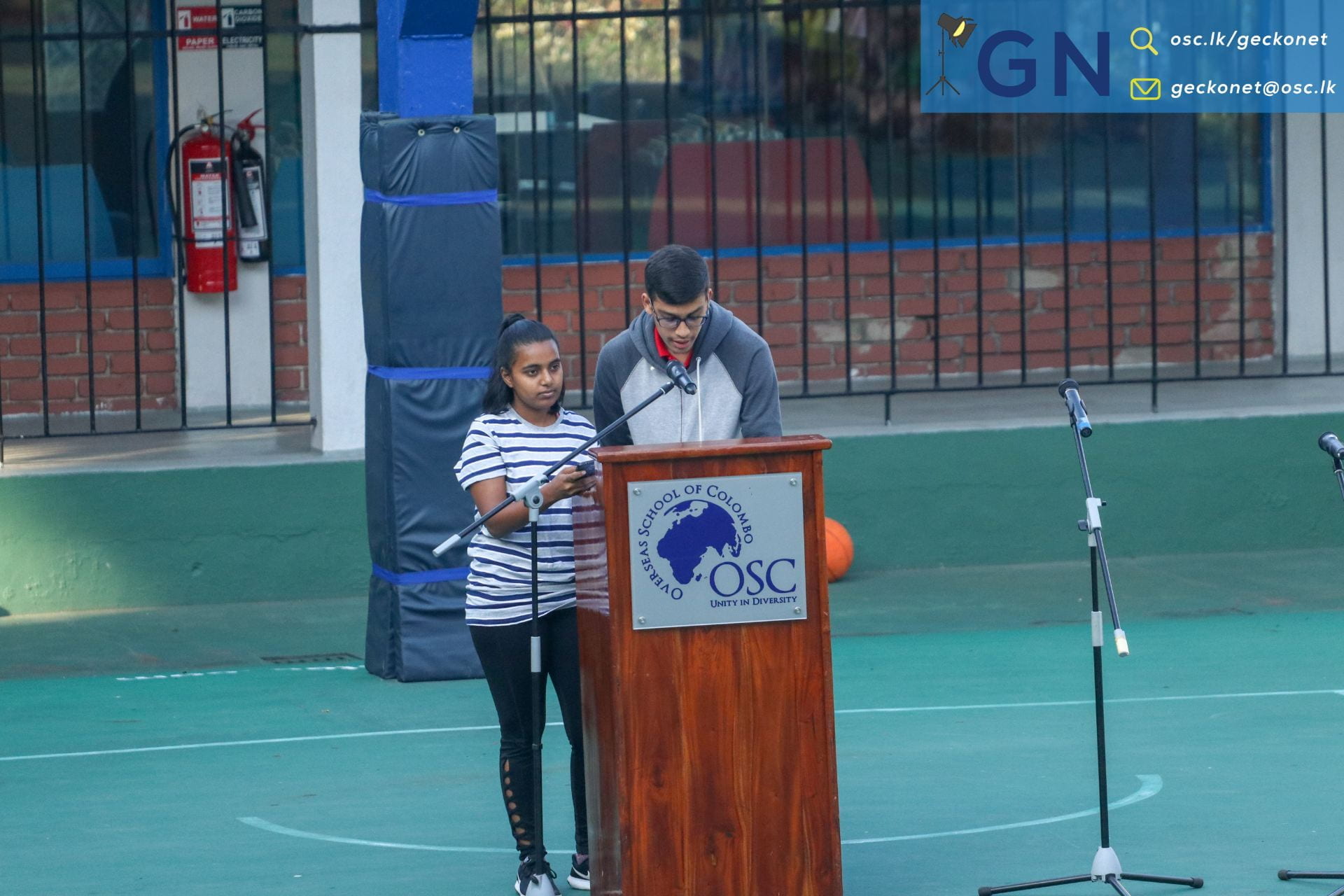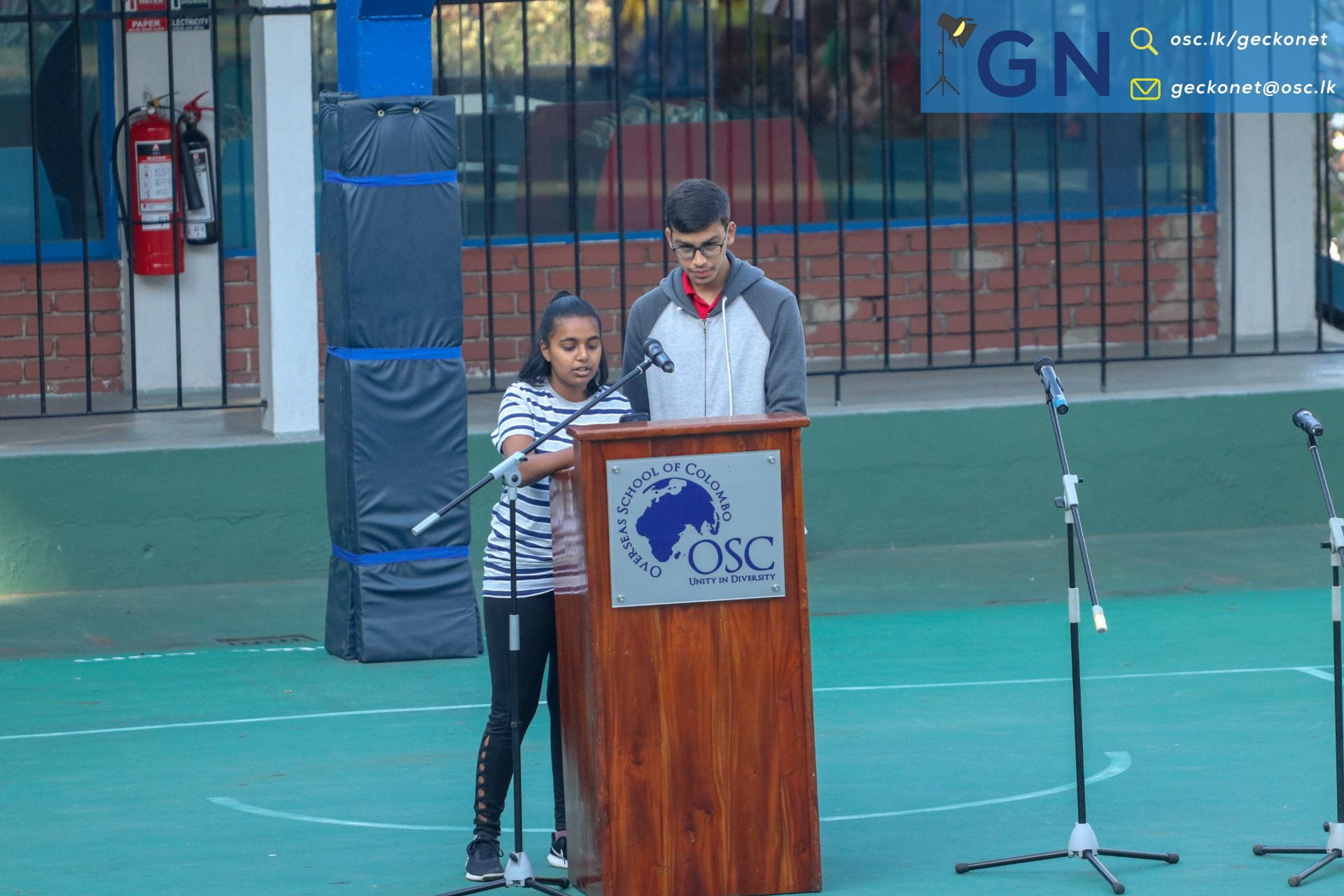Mother Language Day
On February 21st 2019, Arnav and I had to present something for International Mother Language Day. Our school is rich with so may different cultures and people from different backgrounds. With this diversity comes a variety of different languages that we were able to appreciate on International Mother Language Day. There are around 6000 languages spoken in our world, and 43% of these languages are endangered. International Mother Language Day has been known to celebrate since February 2000 to promote linguistic and cultural diversity in languages. It also spreads awareness about endangered languages throughout the world.
“Every two weeks a language disappears taking with it an entire cultural and intellectual heritage.”
Arnav and I both take Hindi self-taught at school, I have mainly chosen this because my mother tongue is Hindi and I have not fully been appreciating my language. I will most likely study in India after High School and being able to read and write Hindi will be very useful for me. Arnav and I were very excited to present something that represents our language and culture in front of the whole school.
We went through the five CAS stages without even realizing.
- Investigation
We were investigating what we were interested in and what specifically we wanted to do for International Mother Tongue Day. Some people were singing, some were dancing, some were reading short stories but after exploring all our choices, we decided that sharing a poem would be simple and effective. We also didn’t have a lot of time to do something complex which would require a lot of practice such as singing or dancing. After more research, we both agreed on ‘Koshish Karne Walon ki Kabhi Haar Nahi Hoti’ which means; the one who tries never fails. The author of this poem is Sohan Lal Dwivedi, many still think that the author is Harivansh Rai Bachchan however he is not write the poem. - Preparation
We decided who will say what and created some background context or an introduction to our poem. We decided to provide the English translation after each stanza so everyone could understand the meaning of the poem. The poem and it’s translation is given down below. After we knew what we were going to do and how we were going to do it, we started practicing the stanzas we were going to say individually. A couple of days before February 21st, we rehearsed together and knew we were ready. - Action
On February 21st, we got the list and the order of everyone who would be presenting something unique and interesting which reflects their culture and mother language. We presenting after 5 minutes when the assembly had started. Both of us spoke clearly and people were able to understand and connect with the poem because of the English translation provided which further highlighted how important language is to understand and connect with each other. - Reflection and Demonstration
Through this CAS post I am able to reflect of all the stages we went through without even noticing and also sharing with the rest of the class by giving a further insight of the preparation of the poem we had shared earlier. Sharing something in my mother tongue, specially in front of the whole school also built up on my presenting skills and confidence in front of a huge crowd. It also showed how important revising and rehearsing is in the preparation stage before the action and how not to leave it last minute.

कोशिश करने वालों की हार नहीं होती
लहरों से डर कर नौका पार नहीं होती
कोशिश करने वालों की हार नहीं होती
नन्हीं चींटी जब दाना लेकर चलती है
चढ़ती दीवारों पर, सौ बार फिसलती है
मन का विश्वास रगों में साहस भरता है
चढ़कर गिरना, गिरकर चढ़ना न अखरता है
आख़िर उसकी मेहनत बेकार नहीं होती
कोशिश करने वालों की हार नहीं होती
डुबकियां सिंधु में गोताखोर लगाता है
जा जा कर खाली हाथ लौटकर आता है
मिलते नहीं सहज ही मोती गहरे पानी में
बढ़ता दुगना उत्साह इसी हैरानी में
मुट्ठी उसकी खाली हर बार नहीं होती
कोशिश करने वालों की हार नहीं होती
असफलता एक चुनौती है, स्वीकार करो
क्या कमी रह गई, देखो और सुधार करो
जब तक न सफल हो, नींद चैन को त्यागो तुम
संघर्ष का मैदान छोड़ मत भागो तुम
कुछ किये बिना ही जय जय कार नहीं होती
कोशिश करने वालों की हार नहीं होती
– सोहनलाल द्विवेदी
The translations for this poem is given below:
| Hindi Poem in English Words | English Translation |
| Lehron se Darkar nauka par nahin hoti,
koshish karne walon ki haar nahin hoti, Nanhi cheenti jab daana lekar chalti hai, chadhti deewaron par, sau bar phisalti hai. Man ka vishwas ragon mein saahas bharta hai, chadhkar girna, girkar chadhna na akharta hai. Akhir uski mehnat bekar nahin hoti, koshish karne walon ki haar nahin hoti. Dubkiyan sindhu mein gotakhor lagata hai, ja ja kar khali haath lautkar aata hai Milte nahi sahaj hi moti gehre paani mein, badhta dugna utsah isi hairani mein. Muthi uski khali har bar nahin hoti, koshish karne walon ki haar nahi hoti. Asaflta ek chunauti hai, ise sweekar karo, kya kami reh gayi, dekho aur sudhar karo. Jab tak na safal ho, neend chain ko tyago tum, Sangharsh ka maidan chhodkar mat bhago tum. Kuch kiye bina hi jai jaikar nahin hoti, koshish karne walon ki haar nahin hoti. |
You cannot take your boat across the sea
If you are afraid of the waves, The one who tries Never fails. The tiny ant carries a small grain in its mouth, Climbs up on the wall, slips and falls a hundred times, The determination in the mind fills your body with courage, Then climbing up and falling down does not hurt, Ultimately, its (the ant’s) efforts do not go waste, The one who tries Never fails. The diver dives into the water of the sea, He returns empty handed a number of times, Not easy it is to find a pearl in the deep waters, But this in turn doubles his enthusiasm, His hands are not empty every time, The one who tries Never fails. Failure is a challenge, accept it, Recognize your shortcomings, rectify them. Till you are successful, shun rest and sleep, Never run away from the battlefield of hard work, You cannot get praise without working for it, The one who tries Never fails. |
Koshish karne walon ki haar nahi hoti
